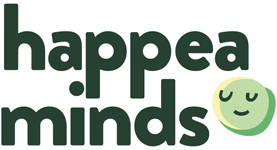ARFID is characterised as a “pattern of disordered eating that avoids certain foods or food groups entirely and/or is restricted in quantity” (This definition is a direct quote from www.arfidawarenessuk.org ). It can encompass a number of reasons for avoidance, including:
– Fears surrounding possible effects/reactions to new foods
– Dislike of certain smells/textures of foods
– A general lack of interest in food
ARFID does not encompass thoughts about body image, or restricting intake for the sake of losing weight. This is what differentiates it from many other eating disorders. I personally found that lots of research exists relating to children and young people, but not as much about its prevalence in adults. It was introduced to me during my diagnosis process for ASD (Autism Spectrum Disorder) in 2023. Whilst researching ASD for the purposes of my own diagnosis, I came across recurring information that suggested that there is some common ground between the sensory sensitivities and lack of interest in foods that exists (e.g. https://www.arfidawarenessuk.org/the-link-with-autism-1 ).
There is definitely increasing awareness of the correlation between neurodivergent conditions and gut-related issues. ARFID, Avoidant Restrictive Food Intake Disorder, is a fairly recent eating disorder (coined in 2013) which is characterised by either persistent lack of nutritional intake, or by lack of energy intake. I want to preface today’s post by saying that, alongside ARFID, I live with contamination OCD and persistent nausea (which is still medically unexplained). I know that symptoms and behaviours of different conditions can often overlap, but with something as under-researched as ARFID, it can be hard to pinpoint exactly what condition is causing which behaviours. Due to this, I want to make absolutely clear that I’m not an expert, and am only talking from personal experience.
As is one of the main characterisations of ARFID, my safe foods impact my energy levels and nutritional intake, and therefore it doesn’t take a lot to leave me feeling exhausted. For me, supplements count as types of food, so I can’t even compensate for what I’m missing, including for existing deficiencies.
I also have a very lengthy process when it comes to trying anything ‘new’, which is rarely and also tends to only be if it falls in the category of things that I used to eat. Partnered with refusing to eat outside of my house, due to worries around things like contamination, potential reactions to foods, and needing to use the toilet (I only use very specific toilets outside of my own), it can be really hard to find enough time to trial something outside of my safe foods.
Food is so integral for the majority of society, which can be really difficult to navigate when you have any eating disorder. It ends up being the centrepiece, or at least a big factor, in the majority of activities and you seemingly can’t escape it! Knowing that my relationship with food is not ‘just a symptom of anxiety’ has been massively influential though, because I no longer try to push through in situations where I don’t feel comfortable. I know that there is a time and a place to test my boundaries – and that it’s not a ‘must’ to challenge myself to feel uncomfortable at every opportunity.

